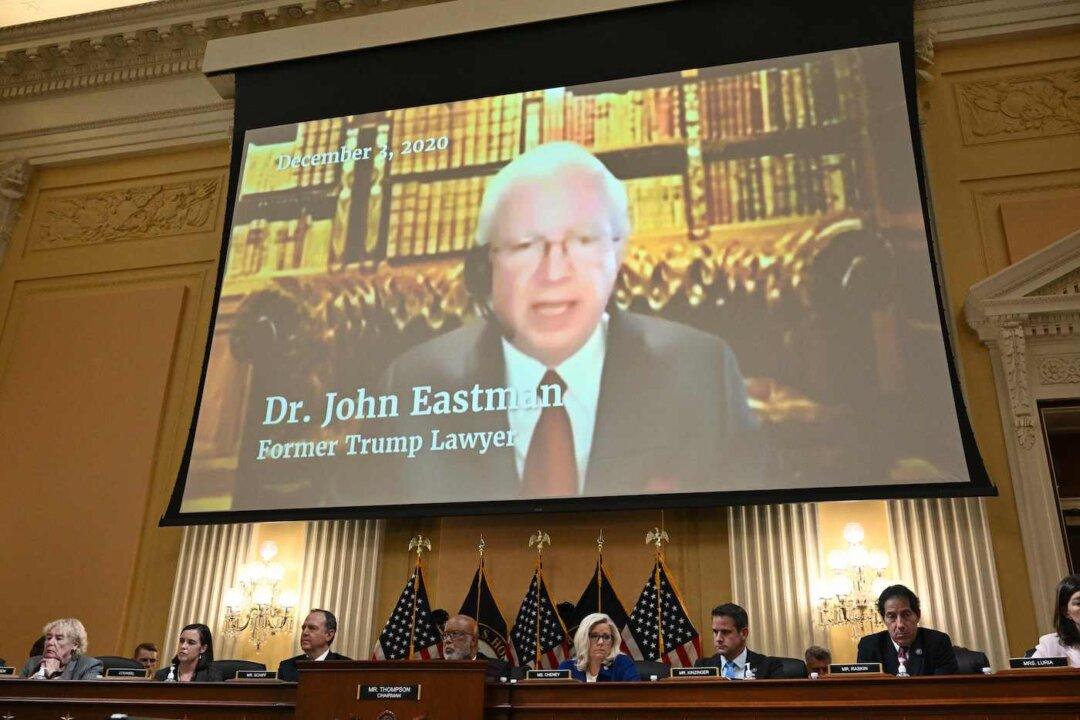John Eastman, a legal adviser for former President Donald Trump, appeared on Aug. 31 before a Fulton County, Georgia grand jury over his claims during the 2020 election, which Eastman’s lawyers called “unprecedented.”
During the aftermath of the 2020 election, when Trump was trying to determine how to move forward on his claims of widespread election fraud, Eastman was among the attorneys in Trump’s inner circle who supported an effort to refuse to certify electoral slates from states where concerns of election fraud were most prevalent.





